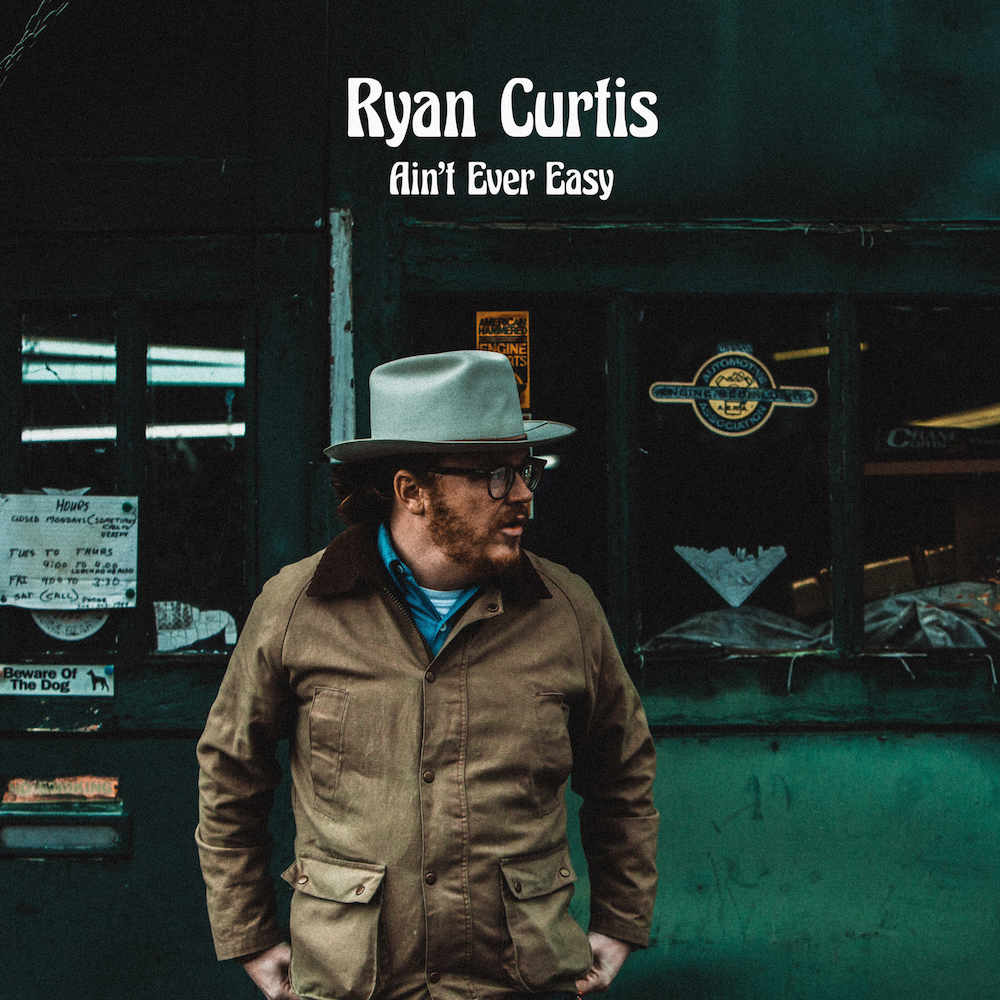Even if you’re not an NPR fan, you’ve no doubt heard of Lake Wobegon, where all the kids are above average. I used to snicker at the mathematical inference of that statement. Then I listened to the new album from Idahoan Ryan Curtis, Ain’t Never Easy, and realized that’s where the other half went. It’s not that the characters in his stories are stupid: rather they’re all just on the underside of life’s emotional midpoint.
The tone of the record gets set on the first song, Can’t Take Back. It’s a lo-fi, raw guitar admission that “she ain’t never coming back” because “I said something I can never take back.” Curtis’ gravelly vocals convey the kind of resignation you hear from a dive-bar stool. Same thing with The Town, where our hero laments he “never thought he’d live long enough to worry about my past.” I Love This City is an often-told tale about wanting to get out of town because while it may have been home before, “there ain’t no love left in it for me.” Good Corn Liquor is a cover of The Steel Drivers Appalachian story where daddy lost his job and momma got sick, so the only option left was to run moonshine.
The lightest track on the record is Cactus and Cocaine. It’s a honky-tonk ode to dim lights and cheap drinks where even the desirous patrons are looking for trouble and mischief, underscored with some sweet accordion. Drunk Tank starts the cycle all over as our hero tries to piece together the gaps between where last night started and his current location. There’s a little hope of redemption in Wasted Energy, an old school country ballad about “trading jealousy for best wishes” and starting to take the path of positive energy instead of wasting time worrying about what isn’t working.

Ryan Curtis’ singing voice is permanent version of noon on Sunday after a Saturday night yelling to be heard, in a joint where the music is intended to limit conversation. He uses it brilliantly, though, as the vehicle for the admission and acceptance of one’s shortcomings. Although Ain’t Ever Easy has a little more southern and roots rock tinge than his previous album, it still cuts to the core of country music’s three chords and the truth.
